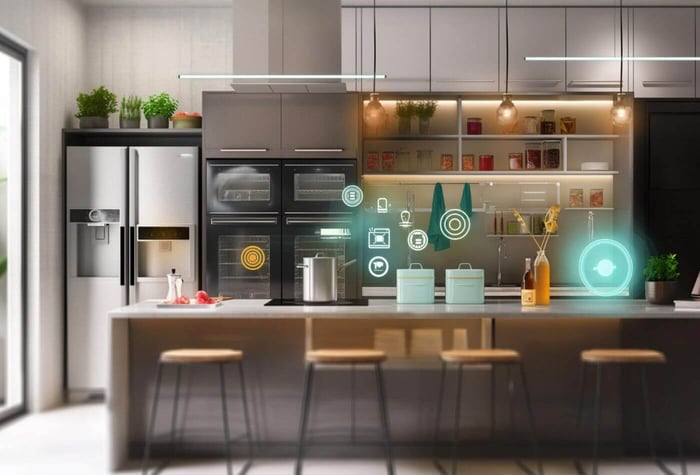
How Does Home Automation Benefit the Environment?
Share
In today's tech-driven world, a crucial question emerges: How does home automation benefit the environment? This inquiry extends beyond mere comfort and luxury; it taps into the core of sustainability and ecological responsibility. As both tech professionals and enthusiastic users, recognizing the environmental implications of our innovations is vital. The burgeoning field of home automation holds significant promise for fostering sustainable living spaces. By incorporating smart technology into our homes, we enhance not only our lifestyle but also the health of our planet.

The Technological Green Revolution
Once viewed as futuristic gadgets, home automation systems are now key players in the green revolution. These systems empower homeowners to manage lighting, heating, security, and appliances remotely. However, their true impact lies in their ability to decrease energy usage and lower our carbon footprint. A study by Advanced Living Solutions suggests that smart thermostats can cut energy consumption by up to 15%, significantly lowering greenhouse gas emissions.
Energy Efficiency at Its Core
The adoption of smart meters and automated energy management systems represents a transformative shift. These advancements provide real-time insights into energy usage, enabling homeowners to make informed choices. For example, smart thermostats adapt to your schedule, ensuring that energy isnt wasted heating or cooling unoccupied spaces. In addition, smart lighting can adjust automatically according to the level of natural light, thus minimizing unnecessary consumption.
Water Conservation: More Than Just Energy
Home automation also champions water conservation. Take smart irrigation systems, for instance; they utilize weather data to create efficient watering schedules, drastically reducing water wastage. This is increasingly important in a world facing water scarcity. Moreover, smart appliances like washing machines and dishwashers optimize their cycles to lessen water usage.
Smart Homes and Circular Economy Principles
The idea of a circular economy is gaining momentum, focusing on waste reduction through reuse and recycling. Home automation fits seamlessly into this concept. By prolonging the lifespan of appliances through predictive maintenance and effective resource management, these technologies promote a more sustainable lifecycle for household goods. Smart waste management solutions also contribute by sorting and recycling waste efficiently.
Cutting Carbon Footprints with Automation
A significant advantage of home automation is its potential to slash carbon footprints. By enhancing energy efficiency and minimizing waste, these automated systems can considerably reduce the carbon emissions typically associated with traditional home management. This aligns with global initiatives aimed at addressing climate change and fostering sustainability.
The Role of IoT in Shaping Home Automation
The Internet of Things (IoT) is foundational to home automation, allowing devices and systems to connect for optimal functioning. This connectivity isnt just about convenience; it creates a harmonized ecosystem that maximizes resource efficiency. IoT-enabled devices communicate in real-time to fine-tune settings, enhancing overall sustainability.
Challenges and Future Outlook
Despite its many advantages, home automation faces hurdles, including high initial investments and the need for technical know-how. Nevertheless, as technology progresses and becomes more accessible, we can anticipate broader adoption and deeper environmental impacts. The future of home automation looks bright, driven by innovations aimed at boosting sustainability.
For further insights into sustainable technology, check out Greenly's blog.
Conclusion: A Path to a Sustainable Future
In summary, home automation is a critical asset in our mission to safeguard the Earth. By enhancing energy efficiency, conserving water, minimizing waste, and reducing carbon emissions, these technologies pave the way for a more sustainable future. As tech enthusiasts and professionals, we must champion and implement these innovative solutions, ensuring they benefit not just our homes, but the planet as a whole.

FAQs
1. Can home automation genuinely lower energy expenses?
Absolutely! By fine-tuning energy usage and cutting down waste, home automation can significantly reduce energy costs.
2. Is adopting home automation cost-prohibitive?
While there may be high initial costs, the long-term savings and environmental benefits usually outweigh these investments.
3. How does home automation aid in water conservation?
Smart irrigation and automated appliances optimize water usage, contributing to conservation efforts.
4. What role do smart sensors play in home automation?
Smart sensors can monitor various environmental factors, enabling better energy management and efficiency in real-time.
5. How does IoT change sustainable living?
IoT facilitates connectivity among devices, fostering a cohesive and efficient living environment.
